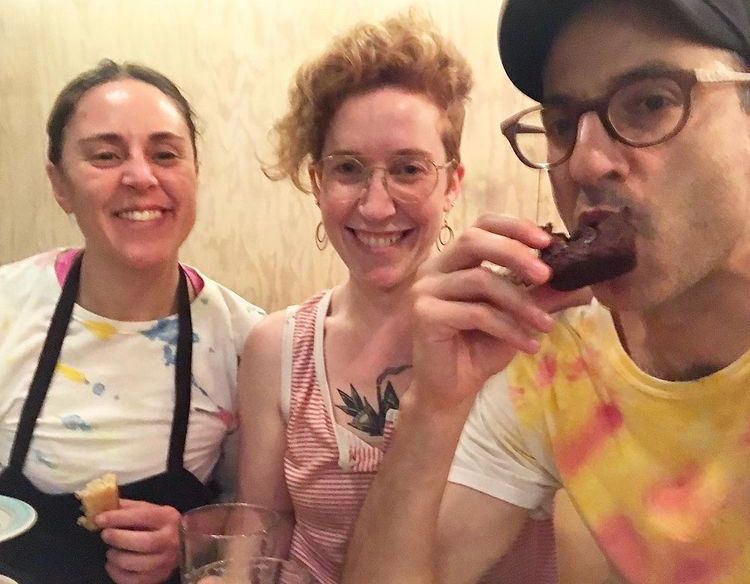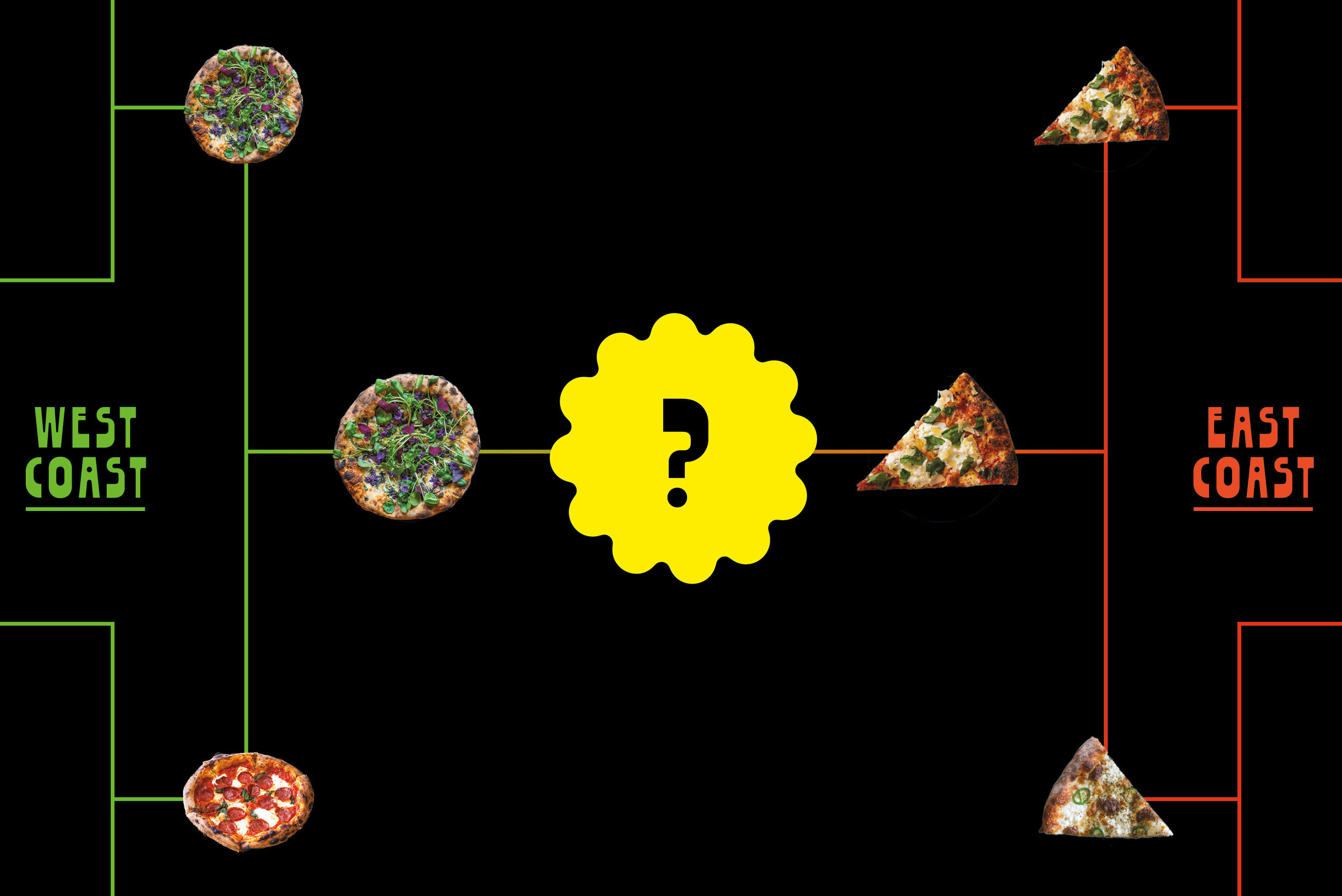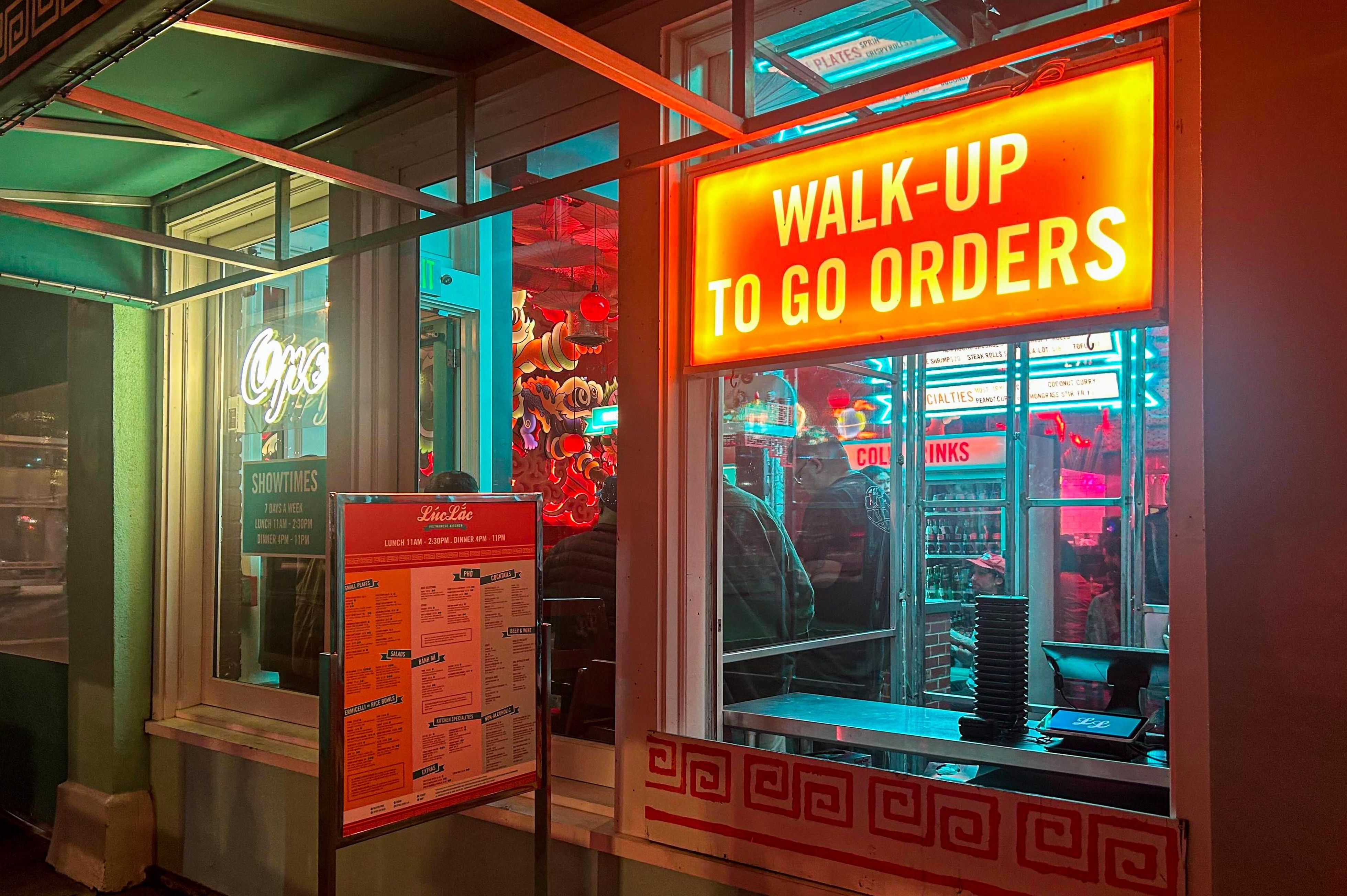Restaurant Calls Out Governor Brown over Lack of Vaccine Access for Workers

Seastar Bakery and Handsome Pizza owners (from left) Katia Bezerra-Clark, Annie Moss, and Will Fain
Image: Courtesy Annie Moss
Starting Friday, March 12, Multnomah County will move from Oregon’s high risk category to the moderate risk category for COVID-19. And while a decline in cases is certainly something to celebrate, the increased maximum capacity for indoor dining—going from 25 percent to a 50 percent capacity limit—as most restaurant workers, grocery store workers, and retail workers remain unvaccinated certainly isn’t, says one of Seastar Bakery and Handsome Pizza’s three co-owners, Annie Moss. The bakery and restaurant, which share a storefront on NE Killingsworth Street, are currently open for takeout and outdoor dining, and the owners have decided not to allow indoor dining until staff are fully vaccinated.
Moss took to Instagram on Thursday morning to denounce Gov. Kate Brown’s decision to increase dining capacity amidst what she calls a “blatantly racist and classist vaccine rollout,” writing that she wishes "the folks who have been out in public, working, facing exposure, and ENFORCING MASK CULTURE for the rest of the population are shown some love and acknowledgement....I don’t love that the safety of my staff of thoughtful, civically engaged, generous people of the utmost integrity is at the whim of a government prioritizing capitalism over humanity."
When Portland Monthly asked Moss to elaborate on her feelings on the vaccine rollout, she responded: “It's that feeling of when you're a kid and the piñata cracks open and you feel like you have to race to get all the candy before somebody else gets it.”
In other words, some people have managed to snag vaccines—but from what she’s seen, many of them have been people who work from home. Moss says she was frustrated seeing social media posts from friends who work from home and were able to get vaccinated before her staff.
“I ... had a friend earlier this week tell me how she got vaccinated by going to the convention center every day to check in and ask about extra vaccines,” Moss says. But that kind of daily check-in would be impossible for some of her employees. “We have people working for us who use public transportation—that's not an option for them.”
Moss acknowledges she enjoys privilege as a restaurant owner, both in terms of class and that she interacts with the public far less than her staff do. But the fact that restaurant and grocery store workers haven’t been vaccinated yet feels particularly hard to swallow when they’ve had a central role in maintaining safety, Moss says. She also questions the decision to vaccinate teachers with only a couple months remaining in the school year.
“I'm speaking as somebody who doesn't have children, so I don't feel like I have a lot of insight into what's going on for families with children and the school systems,” she prefaces. “My curiosity is, are we in a place now where reopening schools that close to the end of the school year, is that the most efficient way to give school districts a chance to prepare, give people a chance to adjust? We’re prioritizing educators with the vaccine ... but the people who’ve been working in retail and grocery stores and restaurants have been out the whole time, and we’ve been the ones who are constantly telling people to wear their mask … reminding people to stand six feet apart, reminding people to step aside so somebody else can step up.”
For Vinh Pham, a pizza cook at Seastar, the decision to reopen indoor dining at a higher capacity feels like it’s undoing a lot of the safety measures essential workers have enforced. “I'm pretty disappointed in the decision by the powers that be,” they say. “Seeing how disproportionately it's affected low-income people, people of color, it's just very shortsighted to make that decision now, and when we've already gained some ground in having some social distance safety and then to roll it back feels really unchill.”
Meanwhile, Beyer Bello, a baker at Seastar and Handsome, is frustrated by essential workers’ limited decision-making power around personal safety. “I don't have any kind of skills that would allow me to [work from home]—I've only ever been a baker. So even if I didn't feel safe coming in to work, I wouldn't have other options.”
Moss believes the vaccine rollout is just a symptom of the way restaurant workers are treated in society at large. “I worked in food service for a long time, and I've worked with lots and lots of restaurant workers,” she says. “I think it's a community of people who are sort of resigned to the fact that society is not looking out for them, and we often don't feel seen. We often feel like we're at the whim of customers treating us like crap, who don't understand the skill and the work that we put into place—and so this just feels like disgusting icing on that garbage cake.”




